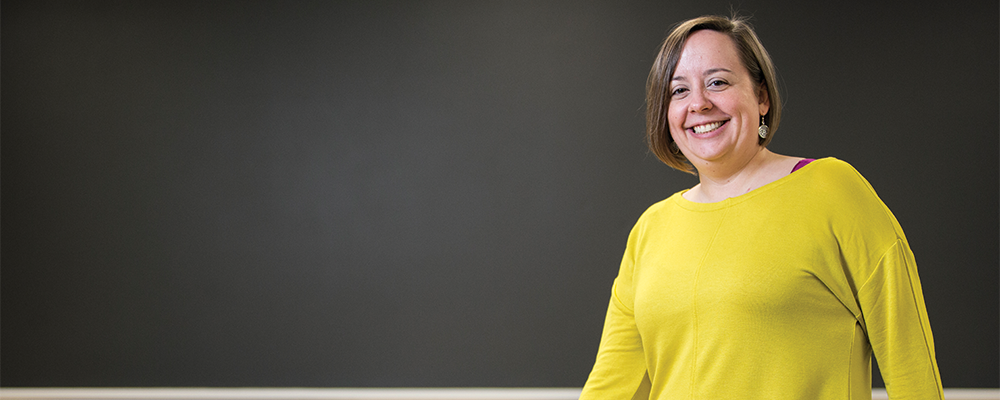Kuyper, the Popes — and an Economist
Sarah Estelle, Ph.D. | Associate Professor of Economics and Ruch Faculty Fellow
Where economics, morality and political theory intersect, you’ll find Dr. Sarah Estelle.
Intrigued by this trio of issues, Estelle recently began to concentrate on economic theory, theological principles and the role of the state, with a focus on the late Nobel Prize-winning Austrian economist Friedrich Hayek.
Hayek, who was skeptical of socialism and central planning, considered knowledge to be local in nature and particular to a certain time and place. If knowledge is local, as Hayek believed, does it follow that decision-making and government should be largely local, too?

In 2017, with this question in mind, Estelle recruited three students to help her scrutinize work by Hayek and several Christian thinkers. Their goal: to assess whether the individuals would see eye-to-eye on this issue, and whether Hayek’s observation about knowledge is consistent with the principles of orthodox Christianity.
Estelle’s research assistants were economics and mathematics double major Brandon Fuller ’19, who became the team’s Hayek expert; political science major Alissa Frazee ’18, who studied Reformed theologian and Dutch politician Abraham Kuyper; and theatre major Anna Jones ’18, whose grounding in Catholic social teaching paid off as she read a variety of papal documents.
“My student collaborators have been an enormous help in starting this project with full steam,” says Estelle, who is incorporating their research into an article she is writing.
For 10 weeks in summer 2017, the group worked in Van Zoeren Hall, pinpointing commonalities and conflicts between the perspectives they researched. They learned that the thinkers had very different starting points, but reached similar conclusions. Hayek’s foundational principle was related to the distribution of knowledge among individuals, while Kuyper built upon the idea that God has granted — by His ultimate authority — different authorities to various individuals. The Catholic theologians, on the other hand, focused on natural law and the purpose of humans.
“While their premises differed, especially between the agnostic Hayek and the two theological principles we explored, the implications of their observations of the created reality had similar inferences — namely, that decision-making authority should be localized within families, smaller communities and other institutions by default,” Estelle says. “All lead one to the conclusion that the state must be limited in its scope in order for civilization to function well.”
The summer research was supported by the same grant that covers the expenses of Hope’s Markets & Morality group in which students explore economic issues through a Christian lens. Estelle is the group’s advisor.
